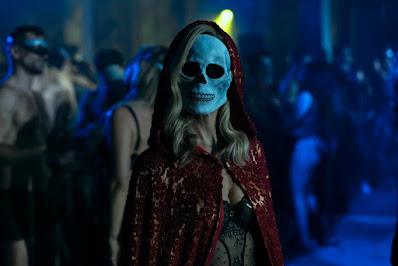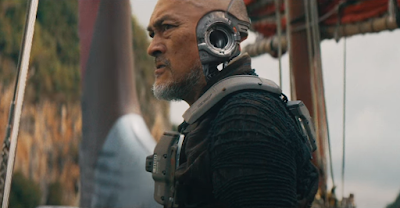Billy wants to help his friend Marty find inspiration and complete a script. He kidnaps a shih tzu that belongs to a gangster who has no qualms about killing anyone to get back his dog.
In 2012, director and writer Martin McDonagh brought us Seven Psychopaths, a film that takes us on a wild and self-aware journey through Hollywood's underbelly. Starring Colin Farrell, Woody Harrelson, Sam Rockwell, and Christopher Walken, this darkly humorous tale weaves together elements of crime, violence, and absurdity. Set against the backdrop of the City of Angels, McDonagh's creation is an exploration of the fine line between snark and satirical wit, all while serving as a commentary on violence and peace in the world of movies.
The film revolves around Marty (Colin Farrell), an aspiring scriptwriter in Hollywood, who, in reality, hasn't progressed much beyond the title of his screenplay, "Seven Psychopaths." Marty's mundane life takes a wild turn when his best friend, Billy (Sam Rockwell), inadvertently dognaps the cherished shih tzu of a ruthless gangster, Charlie (Woody Harrelson). This sets off a chain of events that entangles them with a host of eccentric characters and some truly deranged individuals.
Colin Farrell's portrayal of Marty is a refreshing departure from his previous roles, embracing the character of an Irish waster. Christopher Walken, as Marty's elderly accomplice Hans, brings depth and intrigue to his character with his distinctive delivery and demeanour. Meanwhile, Woody Harrelson is convincingly menacing as Charlie, providing the necessary edge to the story.
Seven Psychopaths delves into a dark and violent world, but it does so with a unique sense of humour that permeates even the most gruesome moments. McDonagh skillfully balances humour, violence, and absurdity, creating a plot that keeps the audience engaged throughout. The film's self-awareness is a striking feature, with the characters themselves openly critiquing the movie as it unfolds, drawing inspiration from the works of Samuel Beckett.
One of the film's standout elements is its witty dialogue, which is laced with humour. The characters engage in deconstructions of famous sayings, surreal script ideas, and humorous confrontations. McDonagh's ability to craft funny dialogue for these small-time criminals adds depth to their characters and amplifies the comedic aspect of the story.
Seven Psychopaths is a cinematic experience that can be likened to Quentin Tarantino's work, particularly in the opening scenes. However, to merely label it as a Tarantino imitation would be an injustice to McDonagh's own unique voice. The dialogue, for the most part, is dry and well-constructed, providing a fresh perspective on the crime-comedy genre.
The film also engages in meta-commentary on the art of filmmaking, weaving questions about the meaning of life and the human need for dreams into its narrative. It prompts viewers to ponder whether our actions in life hold significance, or if we are merely characters in someone else's story. This thematic depth adds an extra layer of intrigue to the film.
Despite its occasional snarky tone, Seven Psychopaths is a highly entertaining movie. It captivates audiences with its unconventional characters, dark humour, and moments of violence. While it may not leave a lasting impact like some of its contemporaries, it stands as a unique addition to the world of crime-comedy cinema.
Seven Psychopaths offers a rollercoaster of absurdity, violence, and wit. With a top-notch cast and a story that keeps you guessing, it's a film that leaves you entertained and contemplating the meaning of life and storytelling. It may not be a perfect cinematic masterpiece, but it is undeniably a memorable and engaging experience.































.jpg)













